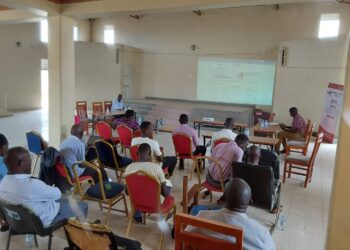By Joy Nabulo
Uganda mostly has a tropical climate characterized by stable rainfall patterns. However, the impacts of climate change have turned the seasons around with the country experiencing shorter or longer rains and harsher droughts something which has continuously affected women and girls in different aspects.
In periods of crisis, girls are often the first to drop out of school to help their families make money, do domestic chores or look after their brothers and sisters. If they are out of school, they are less likely to learn about climate change and how to deal with its effects.
Whereas these victims of climate change are aided by different organizations, pregnant women are displaced; they’re less likely to receive adequate pre- and post-natal care, which negatively impact their health, as well as the health of their babies. Without access to hospitals, nurses, community health centers, it becomes more difficult to give birth in safe, hygienic conditions.
Women and girls also feel insecure because of very poor shelter. This exposes them into the wicked hands of rapists and thieves hence endangering their lives both physical and physiologically especially with camps made using plastics where one can easily penetrate.
When families’ income and ability to survive are put at risk, child marriage can be seen as a way to reduce the financial burden of taking care of girls something which is very common in rural areas.
During and after extreme weather events, girls are at increased risk of violence and exploitation, including sexual, physical abuse, and trafficking. These risks are heightened when collecting food, water and firewood or when staying in temporary shelters.
Girls are more likely to go hungry when food is in short supply. Also, certain diseases may affect girls and if they are already suffering from malnutrition or inadequate water, especially during menstruation or if they are pregnant or young mothers. When droughts and extreme temperatures dry up sources of water, women have to travel longer distances to collect water for cooking, cleaning, and managing gardens. As a result, they have less time to pursue other sources of income, which prevents them from becoming economically independent.
Sources of clean drinking water are disappearing in other ways that harm women. For instance, women have had to travel farther distances to retrieve water for daily use which limits their ability to be independent farmers something which largely affects their financial independence too.
Food and water insecurity prevent pregnant women from getting the nutrients they need. Worsening heat waves expose women who have to travel to get water and fuel sources to health problems like dehydration, heat stroke, and sexual violence since some of them have to move even at night.
In times of crises, girls are often forced to drop out of school or miss classes because household chores become a strain with fewer family members available to share the pressures at home. Girls are often enlisted to take care of family members or to help with domestic chores such as cooking, cleaning or sometimes schools are destroyed in a crisis or even closed for long periods of time.
However, all these impacts can be mitigated by transitioning to a low carbon, changing our main energy sources to clean and renewable energy , control and reduce air pollution, in particular by reducing the consumption of fossil fuels, limiting industry emissions and waste.
Do you have a story in your community or an opinion to share with us: Email us at editorial@watchdoguganda.com













